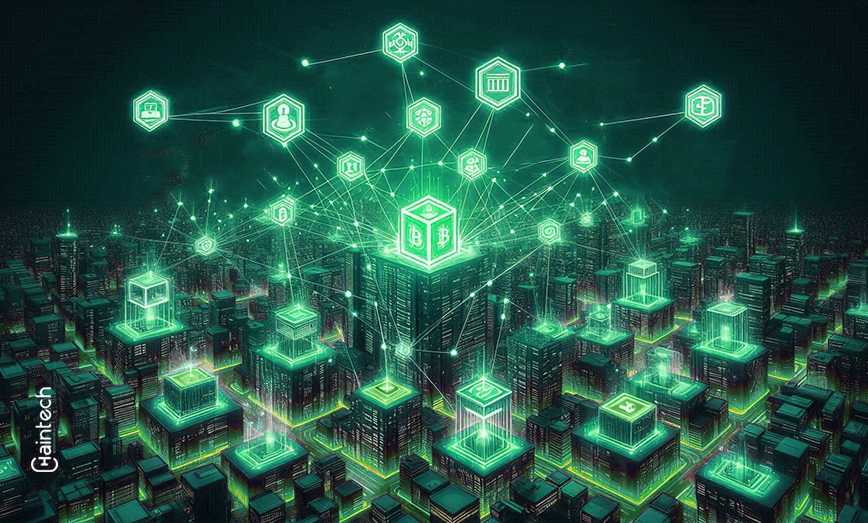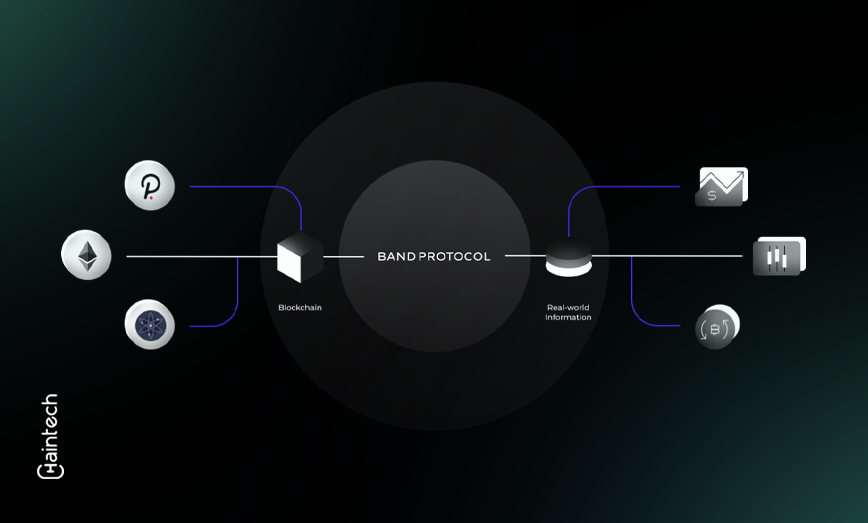Blockchain Technology: 6 Surprising Industry Transformations

Imagine a world where there is no way to fraudulently bypass product tracking, whereby a consumer can trace the product from the factory to the front door. Or imagine how secure sensitive information would be without worrying about data breaches. These are not science fiction ideas anymore. This is the reality because of blockchain technology. Most individuals still link blockchain technology to the use of crypto coins, particularly bitcoin, but stunningly, this technology is changing many aspects of life.
The role of blockchain technology
- Blockchain has become an indispensable and promising data protection measure in numerous industries.
- How business processes are transformed into smart contracts.
Do not stop here, as there is more information on how blockchain is changing other sectors apart from the fast-growing cryptocurrency industry.
Blockchain in supply chain management
Let’s begin with supply chains, which are crucial for all businesses involved in physical goods. Supply chains in their basic form without advanced software are usually chaotic, demonstrate poor audit trails and slothful procedures, and are highly prone to fraud. This is where blockchain disruption comes in to solve all of this.
Blockchain technology enables monitoring of every part of the supply chain. Once a product is produced, its information is documented on the blockchain.
Each stage of the supply chain, be it the manufacturer, distributor, or retailer, has its transactional activity added to the blockchain as it moves from one stage to the next. This accurately accounts for events that anyone within the supply chain can view.
Let’s say you are a retailer. If you practice using blockchain, you will know the exact source of each item, the expected arrival time, and even check its integrity. Such transparency leads to fraud mitigation, a reduction in mistakes, and trust building with clients.
In the case of consumers, there is a possibility of buying organic products with confidence. That ‘organic’ coffee you spent your money on—the source can be tracked back down to the farm from which it was produced.
The impact of blockchain in various industries
Here’s a tabular column summarizing the ways the impact of the blockchain is felt beyond the rim of cryptocurrency:
| Industry | Blockchain Benefits | Impact |
| Supply Chain Management | Transparency, traceability, and reduced fraud | Real-time tracking of goods improved trust between partners |
| Healthcare | Enhanced drug traceability, data security | Reduced counterfeit drugs, streamlined pharmaceutical supply chains |
| Finance (DeFi) | Decentralized finance, reduced intermediaries | Lower fees, faster transactions, and higher returns for investors |
| Data Security | Decentralized data storage, tamper-proof records | Enhanced protection of sensitive information, reduced hacking risks |
| Smart Contracts | Automated, self-executing contracts | Reduced human error, faster and more reliable transactions |
This table highlights how blockchain technology makes industries smarter, safer, and more efficient.
Improving data security with the help of blockchain
Data has overtaken all. However, due to the increasing instances of cyberattacks, data protection is becoming more difficult. Cybercriminals nowadays have relatively easy means to access assets and information due to information storage technology (where all data is stored on a single central server). Fortunately, blockchain is a better alternative.
Unlike conventional databases, blockchain technology is different because there is no centralized data storage. Such a storage structure makes it very hard for a malicious person to bear on tasks with any unauthorized tools.
It becomes harder to manipulate the data since changing something slowly requires changing all the accompanying data, which is done in the correct order. As such, it is impossible without everyone noticing if someone is to hack the data there.
As an example, take a bank. These institutions can keep such data as customer data safely, so no hacker can break through and manipulate that. This means safer electronic money transactions, better personal data safety, and virtually no chance of committing fraud.
Further, they would want to use blockchain to keep customer or internal information that can only be accessed by chosen people. Due to increasing attacks, the use of blockchain to protect data will develop even more.
Blockchain and its contribution to transparency and trust.
Transparency and trust are essential for others, especially for long-term success in various industries. The challenge is creating trust if, for instance, you cannot see the processes taking place as they occur. This is where blockchain comes in.
Since everybody uses the same information regarding the transaction, it is simple to carry out business transactions within or between organizations. Once this information about blocks is committed to the common database, it cannot be altered or erased. As a result, everyone’s anxiety about the trustworthiness of the information is cleared.
In the business sector, for instance, companies can track transactions using blockchain technology to limit scamming. On the other hand, the healthcare industry can use blockchain to track drugs during the supply chain and provide patients with the right, unadulterated medicine.
Companies enhance their relations with partners and customers by improving trust, improving transparency, and eliminating fraud without ever compromising trust.
Did you know?
Blockchain eliminates the opportunity for fraud in supply chains due to increased transparency.
Smart contracts: making business process execution easier
Picture a situation where a contract completes itself. In this instance, there are neither lawyers nor intermediaries, only an agreement whose terms are automatically implemented when conditions are satisfied. This is what is known as smart contracts.
The self-executing contracts embody the terms of the agreement as computer programs. Based on the above illustration, a smart contract can be created to purchase items from another seller, where the payment occurs once received. With this, there isn’t enough room for delays or long-distance emailing back and forth, especially in the quest to complete the wire transfers.
This saves a lot of time and reduces the chances of making errors. It also creates confidence between the two parties since the contract is on the blockchain and cannot be changed after uploading.
This, therefore, means that less time is spent providing business activities as cheaper services are optimally operated. The need for such systems is not just on paper; it includes property sales, shipping industries, and financial markets.
Blockchain in healthcare: based out-of-the-box thinking solutions for efficient pharmaceutical supply chains
Fake medication marketing is another bad habit in the pharmaceutical field. It leads to the expenditure of millions of dollars every year and also risks the health of many patients. In this case, blockchain can address this challenge by ensuring the safe and transparent tracking of drugs throughout the distribution chain.
When any drug is manufactured, its particulars are captured on a blockchain database. Tracking is provided whenever a drug moves from the manufacturers to drug stores, regardless of the product’s location, making tampering futile since the evidence remains visible.
This means patients could be reassured that their medications are authentic. For pharmaceutical companies, it means that they will adhere to regulations better and make fewer losses due to counterfeit items. Blockchain also makes the supply chain effective, efficient, and open.
Did you know?
With blockchains, that sector will be able to save millions of US dollars due to improved drug distribution and reduced incidence of counterfeit drugs.
Blockchain in finance: decentralized finance (DeFi)
And as far as finance is concerned, blockchain facilitates the emergence of the so-called decentralized finance, or DeFi. Banks and other authorities handle various financial transactions in a conventional financial system. This, however, is different with DeFi.
Using a blockchain, DeFi enables people to engage in lending, borrowing, and commerce without assistance from any financial institution. The practice between individuals does not require financial institutions, as all transactions use cryptocurrencies and smart contracts. This lowers costs, increases the speed of transactions, and makes it possible for more people to use financial services.
DeFi hasn’t quite matured. But it has already begun to demonstrate substantial power as a tool for positive change and creating new areas for investment.
Here’s how blockchain is neutralizing various sectors apart from crypto-currency
The rise of blockchain technology is synonymous with its primarily known use, cryptocurrency. It’s a distribution technology changing several areas of the economy, ranging from logistics and technology to medicine and finance. Openness, safety, and effectiveness has led to the rapidly increasing utilization of this technology within enterprises.
Going forward, blockchain will further improve innovation by enhancing the ease and security of processes, the confidentiality of information, and the integrity of transactions.
The following statements are rather general and present a common misconception about blockchain—saying implies that it refers exclusively to cryptocurrency. It simply shows how blockchain technology continues to revolutionize the business world while making it more efficient and secure.
FAQs
- What is blockchain technology?
The blockchain envisages transactions, which are distributed ledgers. For every transaction, there is a digital log maintained on different computers. It’s reliable, clear, and rather difficult to hack.
- What are other applications of blockchain technology apart from cryptocurrencies?
Unlike digital currencies, which are established as tradeable and convertible currencies, non-fungible tokens and other innovative technologies have notably impacted other industries, such as supply chain and management, health systems and services, and finance.
- Explain what a smart contract means.
It automatically performs actions under the pre-defineds, such as sending money, after an event occurs. It performs the contract in an automated manner, and if the agreement’s action takes place, the outcome is given.
- In what ways can blockchain enhance data security?
A transaction record is permanently stored within a network of multiple computers, and thus, the integrity of information is upheld because deleting or changing any details is almost impossible.
- Explain simply what DeFi means.
Decentralized finance, also known as DeFi, refers to a finance system that enables people to conduct transactions involving lending, borrowing, and many others that do not require any central authority by simply using blockchain.









